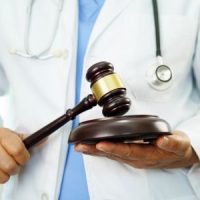Why Do Defendants in Personal Injury Cases Summon Doctors as Witnesses?

In 2019, the Supreme Court of New Jersey ruled on a premises liability lawsuit brought by a customer against a retail store. Alexandra Rodriguez was shopping at a Walmart in South Jersey when a clothing rack fell on her. She sued Walmart, alleging that the company was negligent in placing an unstable clothes rack in an area of its store where customers would get close to it. In her request for damages, she included not only the treatment of her acute injuries but also the medical bills for management of her chronic pain, which she claimed was the result of the injuries she sustained in the accident at Walmart. At the trial, the defendant summoned a physician who testified that, based on his examination of Rodriguez and his review of her medical records, he believed that she was exaggerating her symptoms. The ensuing appeal became a controversy over whether doctors, in their testimony, could accuse plaintiffs in personal injury lawsuits of malingering. The Supreme Court of New Jersey eventually ruled in favor of the defendant, making it possible for physicians in subsequent lawsuits to testify that they believed that plaintiffs were faking or exaggerating their symptoms. If you got injured in an accident at a place of business, and the defendant alleges that your injuries are less severe than you say they are, contact our premises liability lawyer.
Don’t Your Medical Records Speak for Themselves?
As a plaintiff in a personal injury lawsuit, you must prove the following claims:
- The defendant had a duty of care toward you. In the premises liability context, this means keeping the public areas of the store free of hazards that could cause injury and frequently inspecting the store for these hazards.
- The defendant breached the duty of care, in this case, by leaving a faulty clothing rack on the store floor and failing to notice that it was a danger.
- The plaintiff suffered injuries because of the defendant’s negligence, that is, the defendant’s breach of the duty of care.
- The damages the plaintiff is seeking in the lawsuit are for financial losses that result directly from the accident-related injuries.
Your medical records clearly show that you suffered an injury, but the defendant will likely interpret the records in ways that contradict your claims. They may ask the jury to read into what the records do not say. How can the jury be sure that the accident that led to your emergency room visit was the one that took place on the defendant’s property, and not something that happened shortly before or after. Pain does not show up on diagnostic images, and it can have many causes. The defendant can claim that you have chronic pain simply because you are old and have a lifetime of old injuries that continue to act up.
Contact Monaco Law About Premises Liability Accidents
We are a New Jersey and Pennsylvania personal injury law firm serving Atlantic County, Bucks County, Burlington County, Cape May County, Camden County, Chester County, Cumberland County, Delaware County, Gloucester County, Mercer County, Middlesex County, Monroe County, Montgomery County, Philadelphia, Ocean County, Salem County, Susquehanna County and all of New Jersey.
Source:
whyy.org/articles/n-j-supreme-court-allows-testimony-on-whether-plaintiffs-are-faking-injury-symptoms/
